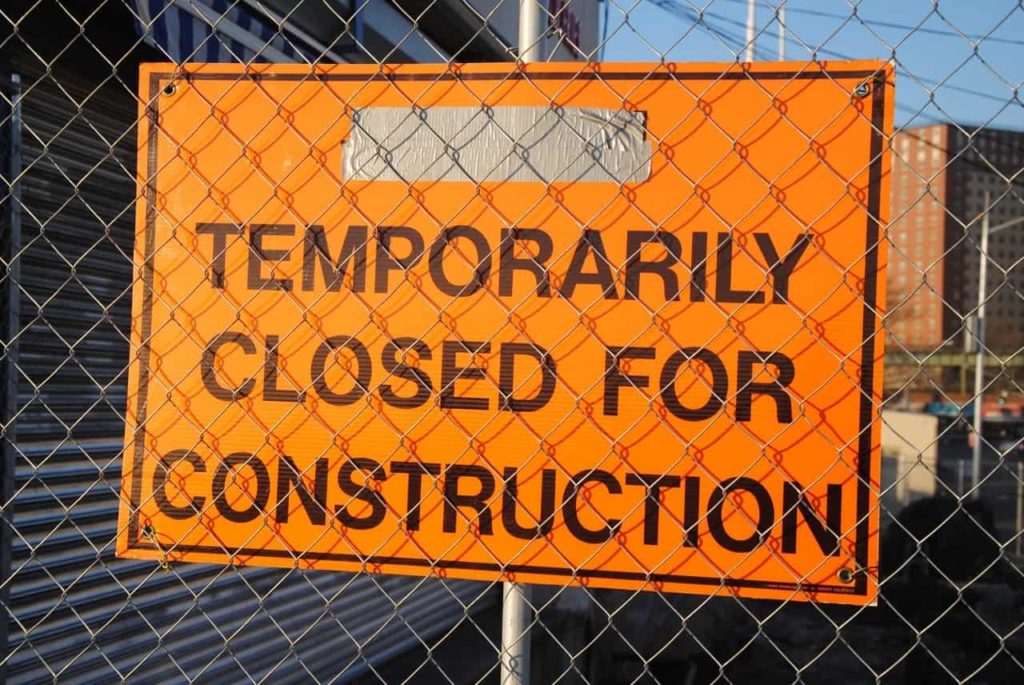
Issues arising from Coronavirus in Construction
Thursday 14th May 2020
We’ve been busy advising on many issues relating to Coronavirus. Each situation has been unique. Everyone has their own commercial drivers and priorities in managing risk.
We thought we would share a number of the key themes and issues which the Coronavirus has thrown up. Not all of these have simple “black or white” answers but we hope that in sharing these points we can help your thought processes and the proactive management of risks.

Implications of Guidance on return to work
The Government’s Guidance for return to work on construction sites involves lots of additional measures and restrictions. This is to protect workers.
But it may increase the costs of managing and carrying out works, especially in restricted spaces within buildings. It may also prolong the length of time it takes to finish work.
Employers and Contractors need to look at their contracts to see who bears the risk of these extra costs and delays to projects. The wording within standard form contracts is not 100% clear cut on this issue. Many bespoke contracts may possibly not have contemplated this.
Employers and Contractors need to be mindful of their legal responsibilities and duties of care in respect of health and safety and protection of welfare in the light of the ongoing virus threat for a long time, pending any progress with a vaccine.
When to re-open sites
As many Contractors are now allowed to re-commence work and have established safe working practices, they will expect to be allowed back onto sites. In some cases, providing access is not straightforward, particularly on projects within existing buildings or ongoing business operations, where safe working and social distancing may provide significant obstacles to access. This may give rise to extensions of time and loss and expense claims.
Contractors will wish to deploy their resources on other work if it is available, meaning that the Contractor is not immediately available to return to site when the Employer is ready. These are practical issues which parties need to communicate clearly with each other in order to manage expectations and potential liabilities.

Restricted access to site
In most contracts the Employer owns the site and is able to provide access to the Contractor. That is the Employer’s responsibility.
Sometimes Employers provide access to the wider block but impose responsibility on the Contractor to liaise with residents to arrange access to dwellings.
But what happens in say a multi-tenanted block where individual residents may refuse or be unable to allow access to parts of the site?
Employers and Contractors need to consider carefully how the risk of delay is to be fairly addressed.
Supply chain delays for goods and materials
In most standard JCT building contracts a Contractor is likely to be entitled to an extension of time to the date for completing the works if anyone engaged in the “preparation, manufacture or transportation” of goods or materials is subject to a “lock-out”.
It is likely that the UK Government’s lockdown and the similar lockdowns in other countries would count as a “lock-out” if manufacturers were prevented from operating. The same principle applies to designers, but it is perhaps less easy to demonstrate this where many designers may be capable of continuing their work remotely.
So even if the Contractor has access to site, he may be entitled to an extension of time if his supply chain is broken. The particular circumstances would have to be scrutinised though.

Bespoke break clauses
On many projects which have not yet started, parties are nervous about whether further Coronavirus developments might interfere with progress. In some case it has been possible to divide projects up into “sections” which might not otherwise have been required.
This has allowed Contractors (who have resources available) to make a start on certain sections of the project. This generates turnover for Contractors. However the “quid pro quo” has been that they have agreed to allow a “break” clause to be included in their contracts, giving the Employer the freedom to terminate the project at the end of a section without the risk of having to compensate the Contractor for loss of profit claims.
This demonstrates a pragmatism on all sides in the general desire to keep projects and turnover moving in some way of other.
Deferred possession of a site
Most standard building contracts include an option to defer possession of the site by up to 6 weeks if the parties agree.
However, what if the lockdown continues for longer than expected or the Government tightens the restrictions again in the face of a “second spike”? The Employer would be committed to giving the Contractor possession of the site at the end of that 6 week period come what may.
That carries greater financial risk for the Employer because, if he does not allow the Contractor to start on site, he will be in breach of contract and may face the prospect of the Contractor treating this as a repudiation of the contract, giving rise to a liability for substantial damages.
This risk has led some Employers to play safe and to hold off entering into formal contracts, and issuing limited Letters of Intent to Contractors. This has capped their liabilities, but has enabled certain off-site work to be commenced. Many Contractors have accepted this as a way of getting things moving.

Attempts to vary contracts
On existing projects parties have been understandably worried about the rising cost of ongoing contract overheads (“preliminaries”) and plant hire charges during the lockdown.
Contractors have a duty to mitigate their ongoing costs where they reasonably can, but otherwise they are in principle able to recover additional costs incurred during periods of delay for which they are not responsible under the contract.
Some Employers have sought to minimise this potential exposure by seeking to renegotiate the terms of the contracts as a way of trying to circumvent the usual mechanisms and to avoid having to grant formal extensions of time and loss and expense. Predictably most Contractors have been alive to this and the implications of agreeing to such variations.
A newly found understanding of the term “force majeure”.
Everyone has had to quickly familiarise themselves with “force majeure” clauses. Force majeure only arises if it is expressly referred to within a contractual mechanism. Unlike the law of “frustration” it does not exist as a common law principle. Thus the parties’ rights hang on exactly what each contract says.
In most standard JCT types of contract the term “force majeure” is not actually defined, but is generally understood to mean events which are outside either party’s anticipation and control. If such an event occurs, and notices are given, this gives relief in the form of an extension of time but not additional money (ie risk is effectively shared between the parties).
By contrast, if a contract does not contain such provisions but a party is prevented from performing its obligations (as opposed to being just delayed) then that contract may be “frustrated” and terminates from that point. Frustration is a very high hurdle to jump. And when does delay turn into prevention?

Contracts yet to be entered into
Remember that force majeure provisions are unlikely to provide any grounds for a Contractor to receive an extension of time to complete works if the Coronavirus pre-dates the Contract. This is because the event is now a foreseeable one.
So if parties are currently now trying to conclude contract terms, it is important to understand that if works are halted subsequently by a “second spike” of the coronavirus, this would not of itself be a basis for an extension of time.
Increasing use of Performance Bonds
Sadly, the risk of insolvency grows. Consequently the need for due diligence and care in selecting who to contract with becomes ever more important. Contractor’s Bonds or Employer’s Payment Guarantees will be more common.
Surety companies, who provide a lot of these types of bond are notorious for seeking to insert numerous types of limitation or qualification within the bonds they issue. Some of these changes can appear innocuous to the unwary, but great care is needed as they usually have significant implications.
If you want to talk through any of the above issues, or any aspect of your projects, please do contact us, our details are below.

